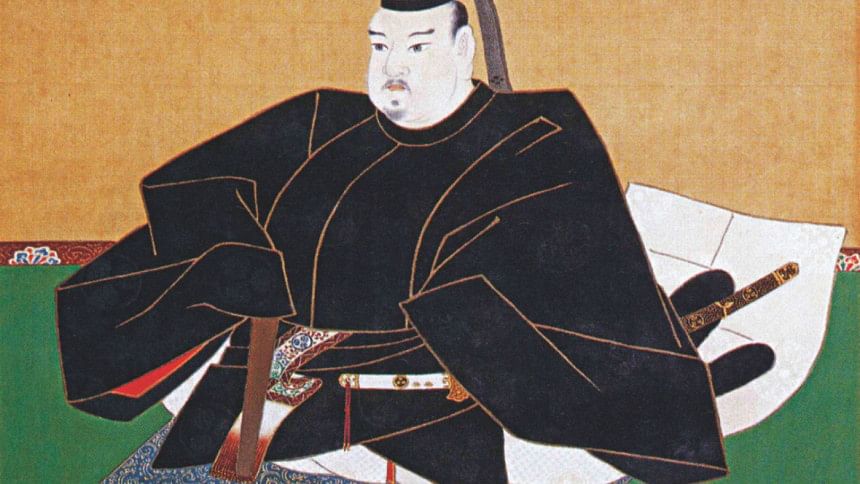Give Peace a Chance (or Else)

Sengoku Jidai was a period in Japan's history when every samurai and their granddaddy wanted to be the shogun, chief of warriors and the real authority in the country. Several notable names managed to occupy the post during this time, the last of whom was Tokugawa Ieyasu, who out-bullied the competition in 1603.
Tokugawa got to the shogunate through war, bribery and treachery; he had to make sure no one would be able to do the same to him. The trick to ensuring that his dynasty would hold the shogunate forever was simple, brilliant and so mad that it's obvious why no samurai had ever tried it before.
Tokugawa decided to put an end to war.

The maxim "No more wars" was the cornerstone of the Tokugawa Shogunate's domestic policy. During Sengoku Jidai, Japan had mastered the make and use of guns; Tokugawa ordered all muskets confiscated and stored in the local castle; for he allowed each district to maintain only one great fortress and dismantled the rest. The lords of each district, the daimyo, would thus have only one point of power in their lands should they wish to try anything, and could not move soldiers across their district borders. Armies could only exert their power locally, and the once powerful and unruly samurai became police and administrators. Samurai had been noted for their skills with bows, halberds, guns and horses: the new samurai became synonymous with the katana, a weapon useless on the battlefield.
The daimyo became further trapped by the shogunate's policy of sankin-kotai: daimyo would have to alternate residence between their home districts and the capital at Edo every few years. In their absence they would leave their wives and heirs at Edo as the shogun's hostages. Not that this was necessary—the expense of maintaining residences at Edo ready for courtly ritual as well as the costs of constant traveling in state made daimyo simply too poor to afford rebellion.
The potential instability of foreign influence was not tolerated. The imported and increasingly popular religion Christianity was banned, and rebellions led to massacres. The country was almost entirely closed off in a policy called sakoku: the penalty for entering or leaving the country was death. Foreign trade, notably with the Dutch, was allowed in a limited and strictly regulated context. Thought control was exerted by the metsuke, the Tokugawa Shogunate's combination of FBI and Censors Board.
The samurai found themselves in the unenviable role of a powerful elite that increasingly became aware of their own redundancy. Sankin-kotai meant that they would have, like their daimyo, adjust to urban life and patronising the inns, theatres and brothels that sprung up to service them. Their new roles as glorified civil servants and the increasing turn to luxury took a toll on their image.

Stories and plays about the samurai lost their immediacy and worldliness and looked back to an imagined, mystical past, crediting the samurai with superhuman skills. These stories had all the appeal and influence of the King Arthur's legends, despite having as much historicity. The samurai themselves clung desperately to their warrior heritage. Martial arts had previously been straightforward and named with the suffix –jutsu, but new forms emerged that ritualised combat as sport and a way of life: these were –do. In the Tokugawa Period we first read about the way of the warrior: bushido.
Writers who codified bushido became influential and remain so even to this day: the irony of a warrior ethos appearing after wars were put to an end seemed lost. Bushido and theatre invention supplanted fact, and the inability to tell apart fiction from reality would have dangerous consequences for future generations of Japanese.
The Tokugawa dream was shattered by America kicking down Japan's door in 1867 and dragging it out to meet the world. After two hundred and sixty-four years of peace through tyranny, Japan would soon make up for lost time.
Zoheb Mashiur is a prematurely balding man with bad facial hair and so does his best to avoid people. Ruin his efforts by writing to [email protected]

 For all latest news, follow The Daily Star's Google News channel.
For all latest news, follow The Daily Star's Google News channel. 



Comments